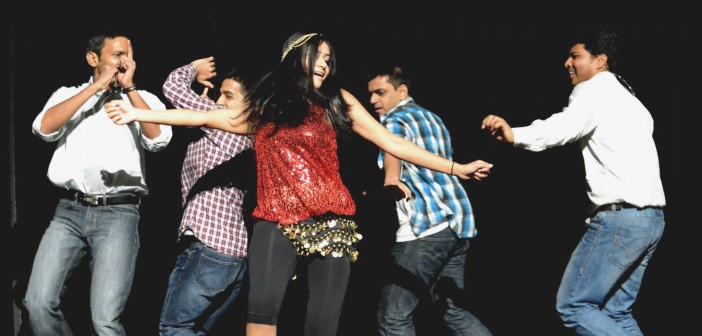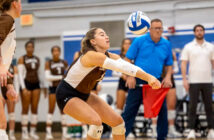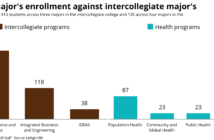When Kris Datta, ’16, was a first-year student, Lehigh’s Indian culture-focused opportunities seemed to fall short of expectations. The weekly meetings of the Indian Student Association usually consisted of 10 people gathering to play games, and celebrations such as Holi — the Hindu festival of colors — were attended by under 50 people.
Now as a senior and president of the Indian Student Association, Datta has seen an evolution of Indian culture and organizations at Lehigh.
Datta said the mere scope of programs and attendees at events are evidence of this evolution. Holi, which was once held at Coxe Hall with 20 people, moved to the Front Lawn in 2014 with 250-300 attendees. In 2015, that number hit over 600, and this year, when Holi takes place on April 16, the group is expecting around 1,000 students to participate.
While the Indian Student Association is a cultural outlet for undergraduate students, the India Club provides the same for students coming to Lehigh for graduate programs.
Shantanu Ravindra Bapat, the president of the India Club, came to Lehigh to earn his master’s degree and said coming from India and having the opportunity to be a leader of a club has been a great experience.
Both presidents, Datta and Bapat, believe the success of both clubs’ events over the last two years is in large part due to the partnership the clubs have formed.
In prior years, both organizations would hold separate celebrations for the same holidays. Last year was the first year that Diwali Night, one of the organizations’ bigger events, was put together by both clubs and its success was once again made evident through attendance numbers.
Bapat doesn’t think one club has a particular strength over the other, but with a bigger pool of individuals working together, people with separate strengths and talents can be assigned tasks they can do best.
Along with this collaboration, a big part of the clubs’ success is the inclusiveness of its membership.
“No matter what culture you are, you’re welcome to both clubs,” Preom Sarkar, ’18, said.
Sarkar, the secretary of the Indian Student Association, has found, in her experience, many people assume the Indian Student Association is just for people that come from India or speak Hindi. However, Sarkar herself is Bengali and said there are several different countries, languages and religions that make up these clubs.
This is true of the India Club as well. Bapat has friends from around the world such as Japan, Algeria and Iran, among others, that participate in club events.
Because of this, the club tries to hold celebrations for various religions and make sure people attending the club from all different cultures understand why each group celebrates what they do.
Datta said this openness welcomes people with varying levels of involvement in the culture. Some people might be coming from families that didn’t spend much time educating them about their culture, and others might have spent years in clubs and schools focused on it.
“There’s a large spread of how connected people are to their culture before Lehigh,” Datta said. “So (the Indian Student Association) at Lehigh is just a platform to connect and stay connected to that culture, regardless of how much they’ve done that before.”
Datta is aware there might be some people who led a culture-heavy life back home and didn’t want to be a part of that in college. He said this is why the Indian Student Association doesn’t go out to recruit new members but rather believes if people seek the club out themselves, it makes for a more genuine membership based on interest.
Both Bapat and Datta believe that their connections with other people and campus organizations like the Global Union and the Dean of Students Office have been a contributing factor to the growth of the club.
Now, according to Datta, the club’s goal is to continue this success. It will do so by focusing on its network and continuing to welcome people from all cultures of campus to join in its celebration of culture.






Comment policy
Comments posted to The Brown and White website are reviewed by a moderator before being approved. Incendiary speech or harassing language, including comments targeted at individuals, may be deemed unacceptable and not published. Spam and other soliciting will also be declined.
The Brown and White also reserves the right to not publish entirely anonymous comments.